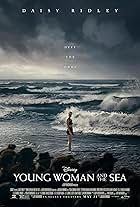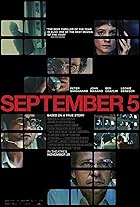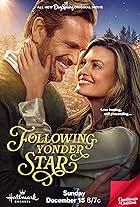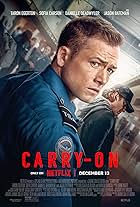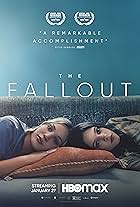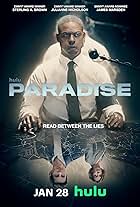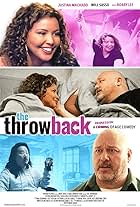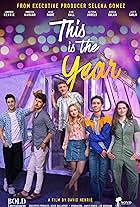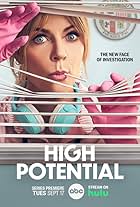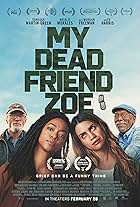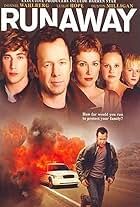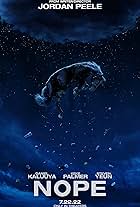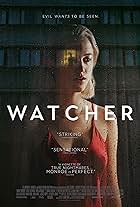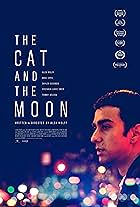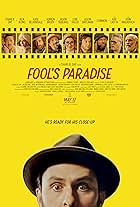
napierslogs
Joined Oct 2002
Welcome to the new profile
We're still working on updating some profile features. To see the badges, ratings breakdowns, and polls for this profile, please go to the previous version.
Ratings8.1K
napierslogs's rating
Reviews553
napierslogs's rating
I tried to watch this (okay, I didn't try very hard).
But in the first minute, the lead character reads a letter that says her rent is increasing 62% every month. "That should be illegal!" she exclaims.
This means she would be going from paying let's say $2,000 in January and then by April she's paying $8,500 and then $13,775 in May.
If we are to believe the writers that this character received this letter, then that means 1 of 2 things about this character is true: 1 - the letter doesn't actually say that and it's probably an annual lease with a 62% increase. That means she's a moron who doesn't know how to read who doesn't know how math works and there's no way she should be running her own business.
OR 2 - the letter does say that. Which means it is illegal. I don't care what fictional town you live in, but any legal group would want to know and she needs to talk to a lawyer and talk to the mayor of the fictional town and fight that absolutely insane unbelievable rent increase. Instead she just accepts it and needs to find a way to keep her business open which again means that she is a moron and should absolutely not be in charge of her own business.
I am so mad when movies try to throw absolutely stupid moronic characters at us, try to tell us they can run a successful business, and expect us to just sit there and take it. And why is the unbelievably stupid moronic business owner always a woman?
But in the first minute, the lead character reads a letter that says her rent is increasing 62% every month. "That should be illegal!" she exclaims.
This means she would be going from paying let's say $2,000 in January and then by April she's paying $8,500 and then $13,775 in May.
If we are to believe the writers that this character received this letter, then that means 1 of 2 things about this character is true: 1 - the letter doesn't actually say that and it's probably an annual lease with a 62% increase. That means she's a moron who doesn't know how to read who doesn't know how math works and there's no way she should be running her own business.
OR 2 - the letter does say that. Which means it is illegal. I don't care what fictional town you live in, but any legal group would want to know and she needs to talk to a lawyer and talk to the mayor of the fictional town and fight that absolutely insane unbelievable rent increase. Instead she just accepts it and needs to find a way to keep her business open which again means that she is a moron and should absolutely not be in charge of her own business.
I am so mad when movies try to throw absolutely stupid moronic characters at us, try to tell us they can run a successful business, and expect us to just sit there and take it. And why is the unbelievably stupid moronic business owner always a woman?
Book of Love is the type of romantic comedy you want to like more than you actually do. They cast Sam Claflin, and then can't do anything else right. He's like a 35-year-old boomer. He knows nothing about social media, complaining about young people "these days", and is generally out-of-touch and mostly cranky and a little misogynistic.
Maria is worse. Every single joke is a variation of her turning his book into erotica. He's mad and she doesn't understand why he isn't thanking her for turning his book into a "masterpiece". The movie and every character in it has confused "popular" with "good". I'm sure E. M. Forster would love to have Howard's End re-written into 50 Shades of Gray. The boomer Henry from the beginning of the movie is not going to forgive and then fall in love with Maria so quickly. And they also have no chemistry.
Maria is worse. Every single joke is a variation of her turning his book into erotica. He's mad and she doesn't understand why he isn't thanking her for turning his book into a "masterpiece". The movie and every character in it has confused "popular" with "good". I'm sure E. M. Forster would love to have Howard's End re-written into 50 Shades of Gray. The boomer Henry from the beginning of the movie is not going to forgive and then fall in love with Maria so quickly. And they also have no chemistry.
Back when I was a chemistry and math student in university, this was the type of movie I dreamed of one day making. A movie which has to balance the science, history and the biography part of a biopic - which often feels like a no-win balance. Enough science to make it interesting for its target audience but not too much to alienate everyone else. Enough of a human story expected from a biopic but not too much to make it boring. Personally, I thought the balance was right. There's some real math and science in the story, the history is absolutely fascinating, the American family elements don't add much to the story, but a necessary element of a traditional biopic.
The other user reviews are complaining about the "adventures" part of the title, as if they're expecting an action movie or something. But the title just comes from a part of the dialogue when they make the big decision to move to Los Alamos, "Are you ready for an adventure?" Immigrants moving across the country, leaving their "cushy" academia job for the Manhattan Project. That is an adventure to them.
There are a lot of big names and interesting aspects to the Manhattan project, and a lot of interesting and different stories that could have been told, but this one is personal to the filmmakers. The Polish identity is a running theme here. It's an ode to Stanislaw Ulam and should not be viewed as a history of the Manhattan Project (which it is not, it's just one small aspect of it that Ulam was involved in) and is very much a traditional independent biopic.
The other user reviews are complaining about the "adventures" part of the title, as if they're expecting an action movie or something. But the title just comes from a part of the dialogue when they make the big decision to move to Los Alamos, "Are you ready for an adventure?" Immigrants moving across the country, leaving their "cushy" academia job for the Manhattan Project. That is an adventure to them.
There are a lot of big names and interesting aspects to the Manhattan project, and a lot of interesting and different stories that could have been told, but this one is personal to the filmmakers. The Polish identity is a running theme here. It's an ode to Stanislaw Ulam and should not be viewed as a history of the Manhattan Project (which it is not, it's just one small aspect of it that Ulam was involved in) and is very much a traditional independent biopic.






